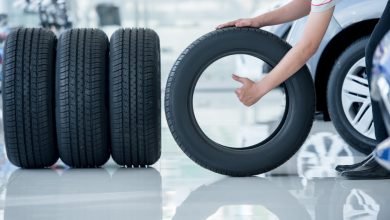
Things You Need To Know About Electric Vehicles
If you remember Minority Report by Tom Cruise, a movie set in the future, it had super-cool rolling cars running on electricity. It is safe to assume that electric cars are there for sure whenever one imagines the future of the automobile industry.
Electric cars move with the help of one or more electric motors, using the energy of rechargeable batteries. Not just cars, there are many types of electric vehicles available now which are present in different models and capabilities.
ADVANTAGES OF Electric Vehicles
SAVES GAS: It is important to converse natural fuels as they are depleting quickly. To ensure sustainable development, it is important to switch to electric cars.
CLIMATE CHANGE: This planet is getting hotter day by day and cars contribute a lot by releasing harmful gases which are injurious to health. One of the major advantages of using an EV is that it does not pollute the environment as much as other vehicles do.
QUIETER: Electric vehicles do not have exhaust emissions, and they are quieter than vehicles with Internal Combustion Engine (ICE).
HOW LONG DOES IT TAKE TO CHARGE AN EV
It all depends on the type and size of the vehicle and the charging point. Generally, an EV has a battery of 60kW, which takes around 7-8 hours to get fully charged with a normal charger. If you have a turbocharger for your vehicle with 50kW power, it will take just 30-40 minutes to charge your vehicle.
Charging an electric vehicle works just like charging your mobile phone; if it has a bigger battery, it will take more time to get charged and vice-versa.
WHERE TO CHARGE
Since electric vehicle are already becoming very popular in the developed nations, the problem of charging is getting resolved. Most countries have established charging points on highways while others are emphasising producing and importing home-chargers.
EV CHARGING STATION
An EV charging point refers to a public charging point set up by the Government or the transport ministry to charge an EV.
It is just like any other gas station where you can plug the charger into your car. One can easily find these charging stations outside a mall, car parking or at community centres.
BENEFITS OF EV CHARGING STATION
- In some places, you may find these stations run by solar power. This way, you can charge yourself while contributing to the environment.
- In most developed nations, these stations are mostly available at a distance of 20 km with other facilities like restrooms, restaurants, etc. Some stations consist of features like cellular capability, smart metering and network connectivity.
- These stations are provided for charging at local parking areas either by the municipal corporations and electric utility companies or at shopping centres by private companies.
EV HOME CHARGER
Around 90% of electric vehicle are charged at home. There are around 82 different Level 2 home charging stations available right now produced by 15 different manufacturers. These chargers can fit in more than 30 different models. There are some great advantages of home car chargers. They are –
FAST: They are fast as compared to other alternatives available. You can charge your vehicle overnight at home.
CONVENIENT: It provides comfort since you do not have to worry about hitting the road to get your vehicle charged.
AFFORDABLE: Since the game is on, the prices have dropped, and the chargers are affordable for consumers.
TIME-SAVING: Time is precious to us more than money, and the best thing about these chargers is they save your time.
One can easily find an EV charger at public places, offices, service stations and installed at home. A person can use their charging cable to charge. It is safe to say that we will have more charging stations in developing countries and more new types of home chargers for EV in the future.



